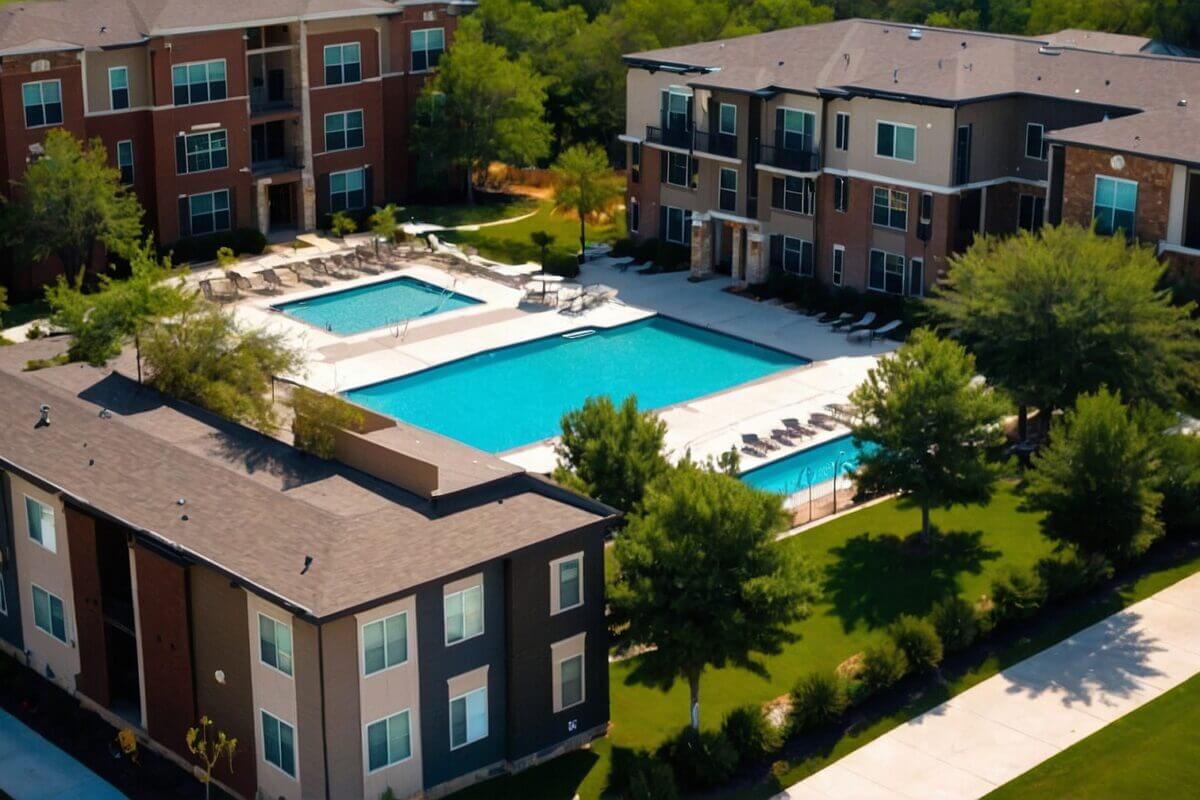
Considering Purchasing an Apartment Complex?
If you’re exploring real estate investments for income and growth, purchasing an apartment complex could be a lucrative option. Apartment complexes, typically defined as residential properties with five or more units, offer unique advantages over smaller properties like duplexes or triplexes. However, they also present distinct challenges that require careful consideration.
Types of Apartment Complexes
Before delving into the buying process, it’s important to understand the different types of apartment complexes:
1. Class A Buildings: These are newer buildings, typically less than a decade old, with amenities like pools and fitness centers.
2. Class B Buildings: Slightly older than Class A, these buildings are generally in good condition but may have fewer amenities.
3. Class C Buildings: These buildings can be up to 30 years old, may lack amenities, and might require renovations.
4. Class D Buildings: Often found in lower-income areas, these older buildings may require significant repairs and lack amenities.
Finding a Property
You can find available apartment complexes by scouting neighborhoods or browsing online listings. Many investors choose to work with real estate brokers familiar with the area to streamline the search process. Critical factors to evaluate include the property’s location, number of units, overall condition, and available amenities.
Financial Considerations
Assessing the financial aspects of potential investments is crucial:
– Rent Roll: Review the rent roll, which details current rent amounts, lease terms, and tenant information for each unit.
– Occupancy Rates: Determine the percentage of time the complex is occupied by rent-paying tenants.
– Operating Costs: Evaluate maintenance and operational expenses, typically around 40% of rental income.
Advantages of Apartment Complexes
Despite their higher upfront costs, apartment complexes offer several benefits:
– Reduced Vacancy Risk: With multiple units, vacancies have less impact on overall income compared to single-family rentals.
– Economies of Scale: Maintenance costs per unit are lower, and additional income streams can be generated through amenities.
– Financing: Lenders focus more on the property’s financial performance than the borrower’s credit score when providing financing.
Drawbacks of Apartment Complexes
However, there are also drawbacks to consider:
– Higher Turnover: Apartment tenants may move more frequently and be less diligent in property maintenance.
– Management Challenges: Managing a larger complex can be complex and costly, often requiring professional management services.
– Liquidity: Apartment buildings typically take longer to sell and are less liquid than other types of real estate investments.
Due Diligence
Before finalizing a purchase, conduct thorough due diligence, including:
– Seller Motivation: Understand why the seller is selling, ensuring it’s not due to significant profit challenges.
– Lease Review: Obtain copies of all leases to verify rental amounts, deposits, and terms.
– Financial Verification: Review the owner’s tax returns for additional insight into income and expenses.
– Property Inspection: Personally inspect each unit and arrange for professional inspections.
Financing Options
Financing an apartment complex differs from financing a single-family home:
– Down Payment: Expect to provide a larger down payment, typically around 30%.
– Loan Approval: Lenders prioritize the property’s financial viability over the borrower’s credit history.
– Loan Sources: Commercial banks, seller financing, and private loans are common sources of financing.
Closing the Deal
Closing on an apartment complex often involves legal assistance and setting up a limited liability company for ownership protection.
In conclusion, while apartment complexes offer compelling advantages, they require thorough research, diligent management, and careful financial planning. Consulting with financial advisors and real estate professionals can help navigate the complexities and maximize the potential of your investment.
If you’re interested in exploring private money funding for your apartment complex purchase, feel free to reach out to Freddie Avila at 310.940.8886 or contact@privatemny.com. Private MNY Lender can not only lend you the money for your non-occupied real estate investments but can also purchase your multi-family apartment buildings. Visit https://privatemnylender.com/ for more information.







0 Comments